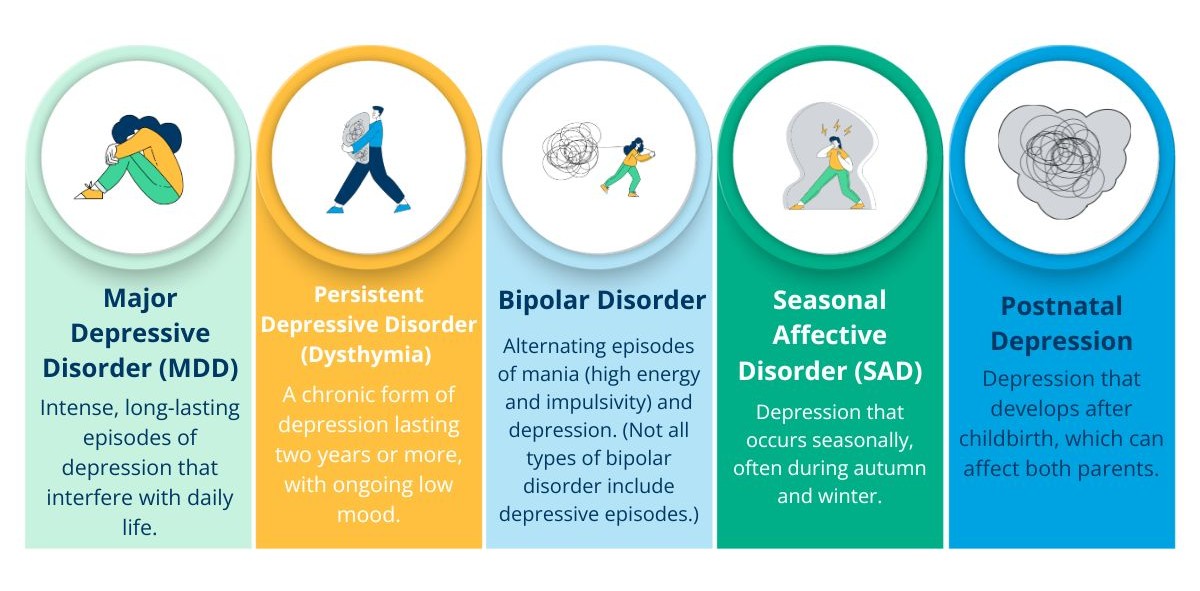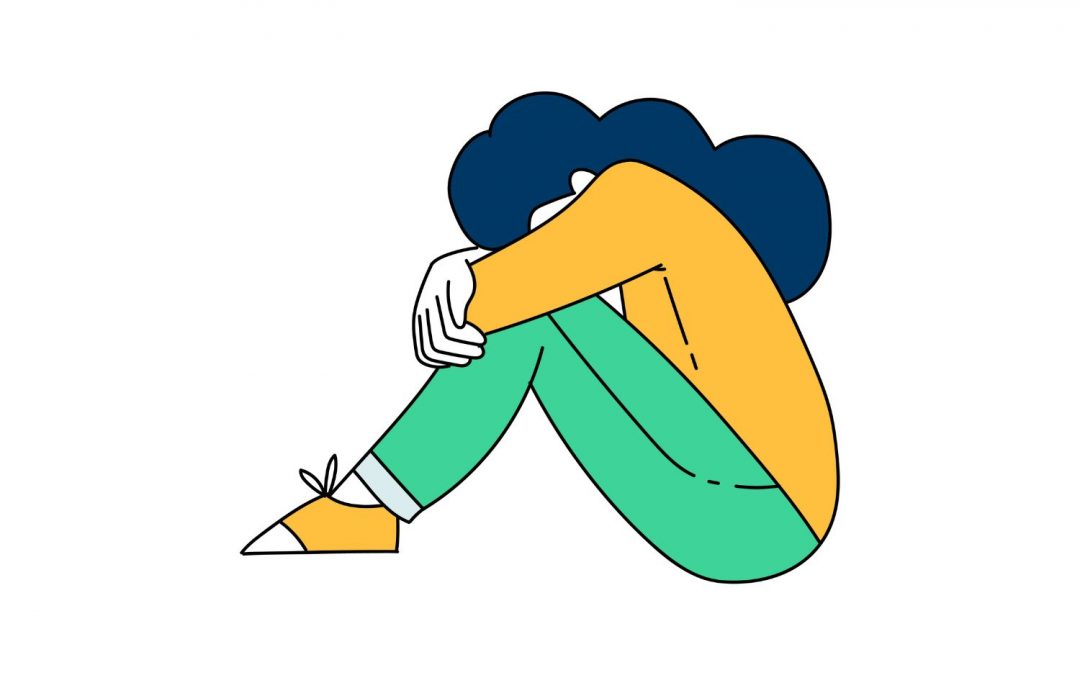Depression is one of the most common mental health conditions, affecting people of all ages, backgrounds, and walks of life. It’s more than just feeling sad, it can impact how you think, feel, and go about daily life. Understanding the symptoms of depression can help you recognise if you are struggling so you can access support. In this blog, we’ll explore the common signs and types of depression and the different ways to get the help you need.
What is depression?
Depression is a mental health condition marked by persistent feelings of sadness, hopelessness, and a loss of interest or pleasure in daily activities. It doesn’t just affect mood, it can influence your thoughts, behaviours, and physical health.
Depression can look different from person to person. Some may experience overwhelming sadness, while others may feel irritable, empty, or physically exhausted.
Recognising the symptoms of depression
Depression is typically classified as mild, moderate, or severe, depending on how much it affects your daily life. Some of the most common symptoms include:
Emotional symptoms
🔹 Persistent sadness – Feeling low, empty, or down for most of the day, nearly every day.
🔹 Loss of interest – No longer enjoying hobbies, socialising, or activities that once brought pleasure.
🔹 Feelings of worthlessness or guilt – Harsh self-criticism, excessive guilt, or feeling like a burden to others.
Cognitive symptoms
🔹 Difficulty concentrating – Struggling to focus, make decisions, or remember things.
🔹 Irritability – Feeling unusually frustrated, agitated, or restless, sometimes over small things.
Physical symptoms
🔹 Fatigue – Feeling drained and exhausted, even after a full night’s sleep.
🔹 Appetite changes – Eating significantly more or less than usual, leading to weight changes.
🔹 Sleep disturbances – Insomnia, early waking, or sleeping too much.
🔹 Unexplained physical symptoms – Headaches, stomach aches, or body pain that doesn’t seem to have a medical cause.
Behavioural and social symptoms
🔹 Isolation – Withdrawing from friends, family, or social activities.
🔹 Loss of motivation – Finding daily tasks overwhelming, even simple ones like getting out of bed or showering.
🔹 Suicidal thoughts – Thinking about self-harm, death, or suicide. If you or someone you know is struggling with these thoughts, seek immediate help.
Not everyone with depression experiences every symptom, and the severity can vary. But if these feelings persist and affect your daily life, it’s time to seek support.
Types of depression
There are different types of depression, each with specific patterns and triggers:

Seeking help for depression
If you or someone you know is experiencing symptoms of depression, you don’t have to go through it alone. Reaching out for help is the first step towards recovery.
Getting support
✔ Talk to a GP or mental health professional – They can provide an assessment and guide you toward the right treatment options.
✔ Consider therapy – Cognitive Behavioural Therapy (CBT) and counselling can help manage thoughts and emotions.
✔ Medication options – Antidepressants may be recommended alongside therapy for some people.
✔ Lifestyle changes – Regular exercise, healthy eating, and good sleep hygiene can all help support mental health.
✔ Reach out to support groups – Connecting with others who understand can be incredibly validating and helpful.
Depression is a complex condition, but help is available, and recovery is possible. Recognising the symptoms of depression early can lead to effective treatment and improved well-being.
Mental health support with Aim Forward
If you are struggling with your mental health, you should always contact your GP first. If you have already contacted your GP but feel you could benefit from further support, we’re here to help.
At Aim Forward, our experienced assessors provide private needs assessments to explore challenges you are facing and create personalised strategies to help you overcome them. For over 10 years, our mental health needs assessments have helped people like you thrive in work, studies and everyday life.
If you or someone you love is struggling with depression, don’t hesitate to reach out for support. You are not alone, and we’re here to support you.
Get in touch with a friendly team member for more information.


Recent Comments